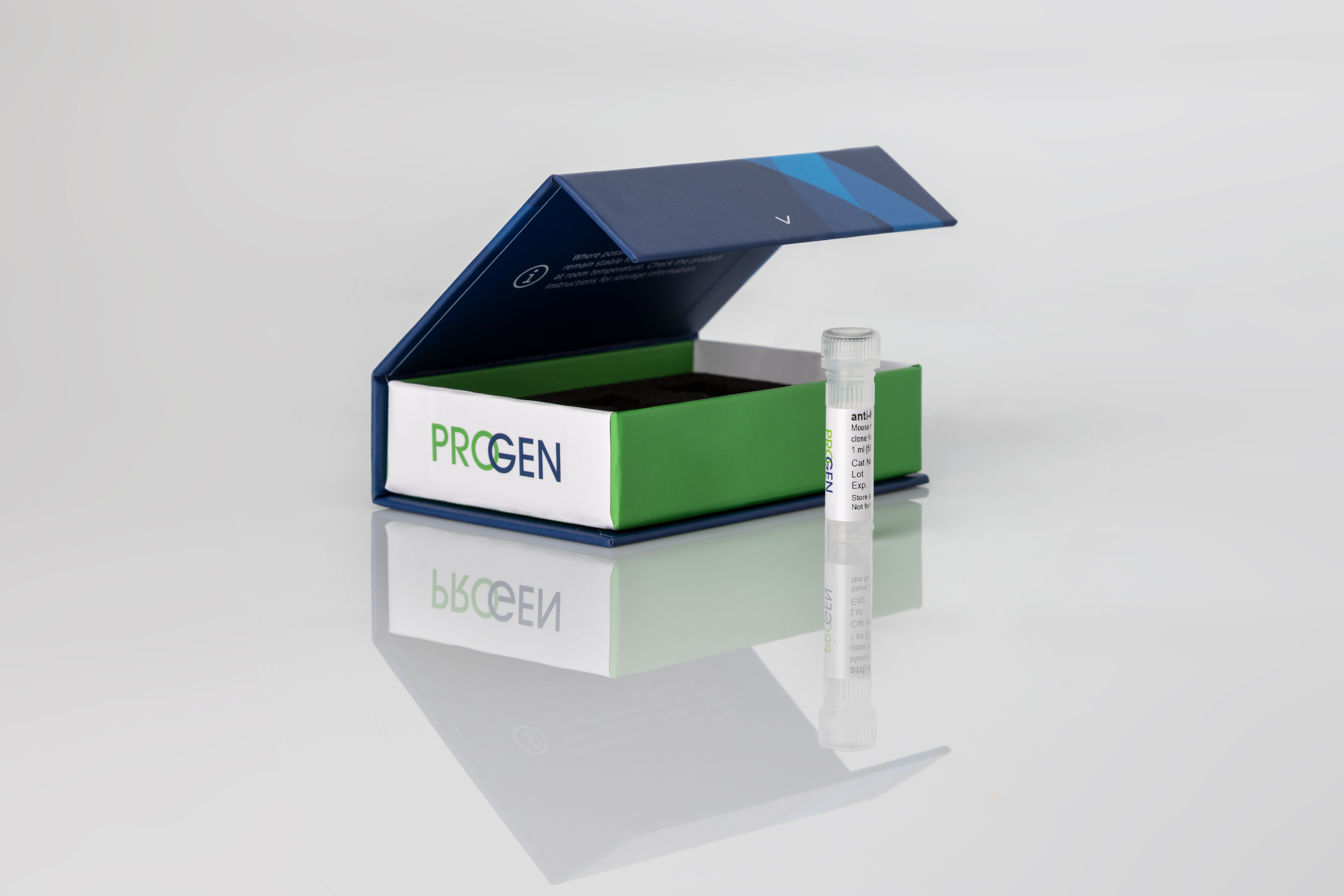anti-Melanoma-Associated Antigen mouse monoclonal, NKI/C-3, ascites fluid
- Mouse monoclonal
- Suitable for ELISA, IHC on paraffin sections and WB
- Reacts with human
- Isotype: IgG1
Product description
| Quantity | 1 ml |
|---|---|
| Antibody Type | Monoclonal |
| Host | Mouse |
| Isotype | IgG1 |
| Conjugate | Unconjugated |
| Application | ELISA, IHC, WB |
| Purification | Ascites |
| Reactivity | Human |
| Storage | Short term at 2-8°C; long term storage in aliquots at -20°C; avoid freeze/thaw cycles |
| Intended use | Research use only |
| Clone | NKI/C-3 |
| Immunogen | Isolated from human melanoma cells |
| Formulation | Contains 0.09% sodium azide |
| Note | Centrifuge prior to opening |
Applications
| Tested applications | Tested dilutions |
|---|---|
| Immunohistochemistry (IHC) - paraffin | 1:5-1:10 (microwave treatment recommended) |
| ELISA | Assay dependent |
| Western Blot (WB) | Assay dependent |
Background
NKI/C-3 recognizes a melanoma-associated antigen present in the cytoplasm of melanoma cells and nevocellular nevi, in contrast to most mabs against melanoma-associated antigens present in the membrane, which are not retained after formalin fixation. Therefore, the mab is very useful for paraffin sections in routine pathology. Cross reactivity with carcinoids, medullary carcinomas of the thyroid, and occasionally prostatic, primary breast, avarian, and lung carcinomas may be observed.
No reaction is seen with basal cell carcinomas or brain tumors. NKI/C-3 does not react with normal melanocytes or other normal tissues except for mastcells, histiocytes, salivary glands, bronchial glands, pancreatic und prostatic epithelium.
For the diagnosis of melanoma, the antibody should be used in combination with other antibodies (e.g. cytokeratin immunoreactivity indicative for carcinoma versus vimentin immunoreactivity indicative for melanoma).
In immunoblotting the antibody reacts with diffuse protein bands between 25 and 100 kD.
Positive control: Melanoma.
References/Publications (1)
Downloads
Q & A's
Customer Reviews
Login
FAQs
The concentration of purified antibodies is mentioned on the datasheet.
For prediluted antibodies the concentration may vary from lot to lot. The concentration of these antibodies is not mentioned on the datasheet and can be requested at support@progen.com.
The supernatant format contains FCS proteins from cell culture medium supplemented with FCS.
The serum antibodies contain other proteins present in serum.
Most of our liquid antibodies and reconstituted lyophilized antibodies may be stored for short term storage (up to 3 month) at 2-8°C. For long term storage we recommend to store the antibody at -20°C in aliquots. Please avoid freeze and thaw cycles.
Most of our conjugated antibodies should be stored at 2-8°C.
The individual storage conditions are mentioned on the datasheet.


